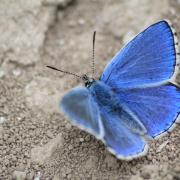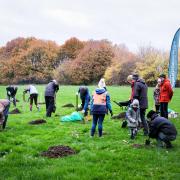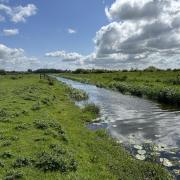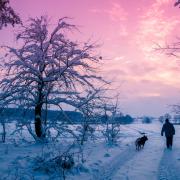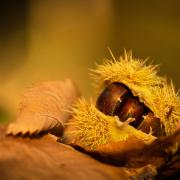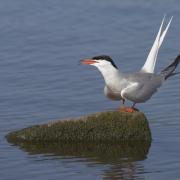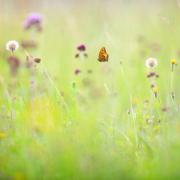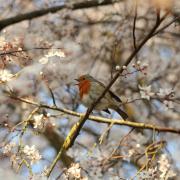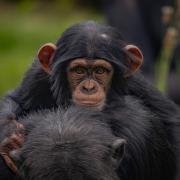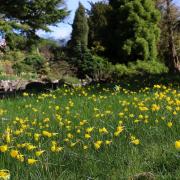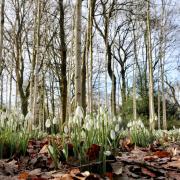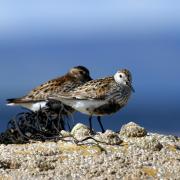Cheshire has a rich history of beekeeping. The Cheshire Beekeepers Association (CBKA) was founded in 1899, and over a century later it continues to thrive, with over 500 members who are fully fledged beekeepers today.
However, despite the longevity of the CBKA, like beekeepers across the country, the county’s beekeepers have had to combat many threats along the way, including the age old foe of bad weather. Last summer was a particularly bad time for bees, as the prolonged wet and cold weather left them struggling to leave their hives and build winter stores of honey. This led to the national beekeeping association – the BBKA – taking the unprecedented step of issuing a starvation warning to all beekeepers that they would need to supplement the bee’s own foraging with extra sugar.
While extra food helped many colonies survive, it couldn’t prevent the dramatic decline in honey production, as shown in the BBKA’s national honey survey which revealed honey production fell by a staggering 72 per cent compared to 2011.
Pamela Hatton, the chairman of the CBKA has been a beekeeper for nearly 25 years, and with her husband, currently has six hives in her large rural garden. However her current colony numbers are down on other years as a direct result of the bad weather.
Pam said: ‘Last season, followed by the long winter at the start of this year, has been the worst we can recall for bees. The wet weather all summer stopped the bees from foraging, queens weren’t mated properly, and stores were low going into the winter.
‘We amalgamated some colonies that we didn’t think were strong enough to survive the winter by themselves leaving us with nine. Despite this and topping up the bees feed, the prolonged cold with heavy snow during March in our area, caused us to lose three colonies, and it has been a similar story for many beekeepers, not just in Cheshire but across the UK.’
Prime bee egg laying season starts after the winter solstice as the days get longer, with the queen laying more and more eggs as the season progresses. By the time summer hits, the colony should then have a healthy sized army to gather nectar. This year’s poor weather, coupled with last year’s abysmal summer, has meant the egg laying season has been severely disrupted, as bees have been confined to the hive and unable to collect pollen in order to support the new brood.
But there are ways we can all help. Whatever the size of your garden, or window box, planting bee-friendly flowers and shrubs can make a difference. Fruit trees, vegetables and herbs like rosemary, marjoram and thyme are great for the bees.
Ivy is one of the only sources of pollen for bees in the autumn so keep some intact to help the bees stock up on food before the winter. It can also be beneficial to bees to leave an area of your garden to grow wild – dandelions and forget-me-nots can look pretty and are a great source of nectar for bees, as well as other pollinators like butterflies.
Cheshire BKA is involved with a lot of county events and shows, such as Poynton Show, Nantwich Show, Cheshire Show and also the RHS Tatton Park Flower Show. They also run beehive displays at smaller events and Garden Centres through the summer, educating the public about bees and beekeeping, and collaborate with Cheshire Wildlife Trust at their events too.
You could win one of five honey bee gift packs worth £65.50 each. The pack, from the BBKA, includes a year’s subscription to the Adopt A Beehive scheme, a jar of honey or honey mustard, a pocket guide to the honey bee and bee-friendly wildflower seeds from HabitatAid. Winners will also receive a selection of honey-based skincare products made by Burt’s Bees.
To be in with a chance of winning simply answer this question:
Which Beatles album featured the song Honey Pie?
A – The White Album
B – Revolver
C – Rubber Soul




